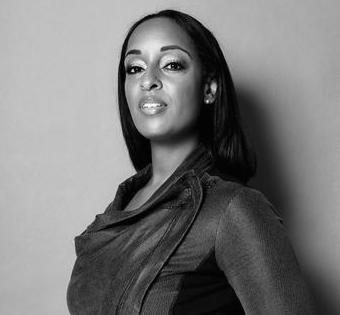Watch Byron Allen’s powerful message about Black people owning their image
"I'm not asking for a seat at the table. I'm taking a seat at the table."
Media mogul Byron Allen talks race and business and explains why he's not asking for a seat at the table, he's taking a seat at the table.
You can’t be what you can’t see. It’s a message we’ve heard time and again.
Whether its #OscarsSoWhite controversies or TV news reports that prioritize publishing African-Americans with mugshots over achievements, the battle for fair portrayals of Black imagery has been ongoing for years.
But media mogul Byron Allen says that much of what Black people see in the media about themselves, is controlled by people who don’t look like them.
“[Corporate giants] spend about 70 billion a year licensing cable networks- and out of that 70 billion a year licensing cable networks, probably less than 10 million dollars goes to African-American owned content,” Allen told theGrio in an exclusive interview.
“Not to be confused with African-American targeted. Not talented Black faces. Owned.”
Allen is the founder and CEO of Entertainment Studios, one of the largest independent distributors of television and film. He is also owner of The Weather Channel and theGrio, and recently purchased 11 TV news stations for $290 million dollars.
The former comedian sued cable giants Comcast and Charter Communications for $20 billion dollars, alleging that both companies refused to do business with him because he was African-American.
As a result of his lawsuit, the Supreme Court has agreed to hear part of Comcast’s appeal to review the Civil Rights Act of 1866, which was the basis for Allen’s lawsuit. The SCOTUS hearing will happen November 13, and activists say it will have ripple effects Black people if the civil rights statute is dismantled.

Dylan King // Entertainment Studios
Allen broke down the importance of Black media ownership by sharing a personal story about this daughter.
“I just had my daughter and you have, there was a white guy, I said, ‘Let me ask you something as a white guy and I’m a Black guy. Would you be comfortable if I controlled all the images and all of the likeness of how your daughter saw herself and grew up in the world seeing herself? I control that. I’m the one that determines whether she sees herself as a crackhead or a prostitute or somebody that’s not that bright. I control her image from the moment she’s born.”
“Are you cool with me having control over how she grows up looking at herself? Honestly?” And he said ‘No.’ I said, ‘Why would you expect anything differently from me?'” Allen remembers.
According to the Pew Research Center, the percentage of White and male newsroom employees, is higher than in that of the overall U.S. workforce.
The Women’s Media Center and Color of Change report that Black writers are “systematically excluded from working on TV entertainment shows” and a mere 17.3 percent have one Black show writer.
The dismal statistics aren’t necessarily a surprise to many African-Americans, but they reinforce concerns that the industry isn’t progressing, despite awareness of the issue.
“Now that I have my daughter, I’m not asking for a seat at the table,” Allen tells theGrio. “I’m taking a seat at the table and I’m going to control how she grows up and how she sees herself and how she feels about herself. That’s not in your hands anymore.”
“And that’s the difference between targeted and owned. Don’t get it confused.“
Watch the clip of Allen speaking above and catch the FULL exclusive interview on our YouTube channel.

Natasha S. Alford is a digital host and Deputy Editor of theGrio. Follow her at @natashasalford on Instagram and Twitter under the hashtag #ThePeoplesJournalist to get the latest in news, politics, and entertainment.
